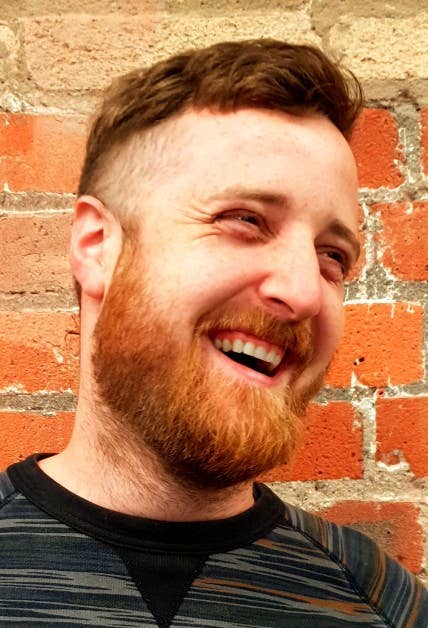Robot Teddy acquisition and new investment arm make Thunderful "a 360-degree" games firm
Brjánn Sigurgeirsson, Callum Underwood and Agostino Simonetta discuss the ambitions for Thunderful's two new developer funds
Thunderful Group continues to grow at a remarkable pace. In the year since it completed its successful IPO, it has acquired more companies, including Bridge Constructor publisher Headup Games, Swedish studio Station Interactive, Spanish developer Stage Clear Studios, and most recently games consultancy firm Robot Teddy.
It's the last purchase that signifies yet another key expansion for the group, as Robot Teddy forms the basis of an additional pillar, Thunderful Investment. Having beefed up both its publishing and development arms, the group is now exploring ways to help even more developers fund their projects through this new venture.
For CEO Brjánn Sigurgeirsson, it's a project that has been a long time coming.
"Prototype investment was something I've been thinking about [as a way] to widen the funnel, to get in touch with more developers," he tells GamesIndustry.biz. "If you can only talk to them about publishing or direct M&A, it feels like you're rushing them into things. "I was talking to Callum [Underwood, Robot Teddy's founder] about it and it turned out... he's going to tell you this was all his idea, but it's something we both landed in together."

Underwood is well known in the development scene, thanks to his stints in publisher and developer relations at Oculus, as chief scout for indie publisher Raw Fury, and as portfolio manager at video game fund Kowloon Nights. While he will no longer be working for Kowloon Nights, he and the Robot Teddy team will be balancing their current responsibilities with their new duties under Thunderful, although Underwood says this may require recruitment to fully realise.
Given his experience at Oculus and working with other VR developers, Underwood suggested a second fund be set up, one specifically for virtual reality games. Combined with the prototype fund, Sigurgeirsson believes this "fits like a glove" with Thunderful's ambitions.
"The Thunderful family can really bring something to the table," says Sigurgeirsson. "If we like the idea and the developers like us, we can add development resources, publishing expertise and we could talk about M&A further down the line. And who is better to operate that than Callum Underwood, who everyone's darling, and his team?"
For Underwood, selling to Thunderful gives the Robot Teddy team a chance to accomplish things they couldn't before -- namely running that prototype fund, or indeed any sort of 'bridging fund,' as he puts it.
The company has so far specialised in supporting developers that have self-published and are already reasonably successful. Examples include Among Us creator InnerSloth, Gang Beats developer Boneloaf, and Superhot Team, the team behind (you guessed it) Superhot.
"We finally have all the angles covered... Today, Thunderful Games feels a more rounded proposition than it's ever been and than many companies out there are"
Agostino Simonetta, Thunderful Group
"These aren't developers that need or want publishers, but they need or want some of the things that publishers do like business support, strategy, release management, certification, all the rest of it," says Underwood. "I wanted to start doing more and funding developers directly.
"To put it bluntly, if I can raise all that money from a single source and have them be a path for those developers as well, everything starts to fit a lot easier. So I want to build funds that don't have to rely on Robot Teddy or Thunderful. We should be able to just fund their prototype and then if they want to go out and do their own thing, that's fantastic. Having the option of anything from M&A to full publishing via Thunderful, or Robot Teddy's style of support studios with self-publishing and management, it all just starts to fit very, very nicely. And to be honest, the stability of being in a group like Thunderful means a lot.
"Brjann is one of the only people in the industry I've found who rants as much as I do about the lack of opportunities for developers and how we should do those."
Thunderful's chief strategy and investment officer Agostino Simonetta, who recently joined the firm after many years at Xbox, adds that the industry has been "a pendulum of publishers and self-publishing" in terms of indies' routes to market, but with the market changing so quickly, Thunderful wanted to adapt to suit more developers' needs.
"With Robot Teddy, we are a 360-degree company," he says. "We can publish the product, we can develop new IP like Lost In Random, but also we can engage in a fruitful manner with a developer that doesn't want to publish with us. So we finally have all the angles covered, we can deliver across those different segments -- and also leverage those segments. There are resources in the company that, if needed, can be tapped into. Today, Thunderful Games feels a more rounded proposition than it's ever been and than many companies out there are, so we feel very good about it."

Full details of the two funds -- prototype and VR -- will be released at a later date, once all the post-acquisition affairs are in order. But Thunderful Investment is already thinking carefully about what it's looking to invest in.
"The short answer is TBD," says Underwood. "The VR fund is probably the simplest. I think there's a real gap of money being given to developers in VR right now. There's a handful of publishers, which I think are great, Oculus and Sony are funding stuff, but there are still funding gaps with these sorts of games. So I'm looking for commercial games, not experiences or educational [games]. We want video games that we can use our experience from Superhot VR and working with Schell [Games] and Oculus over the years, and even partner with Oculus, Sony or publishers if necessary. "On the prototype side, it's a little more complicated. The general idea should be that funding enables people to work on a prototype that they wouldn't normally be able to."
He points to Viewfinder as a prime example, a first-person adventure game that involves taking photos with an instant camera and then using those photos to project more objects into the world that then open up new paths. It was the first prototype Robot Teddy ended up funding themselves, with the team involved in hiring people, setting up a company for the developer, and talking to the publishers. Underwood is also keen to help the likes of student teams, solo developers whose work goes viral before they have even finished it, or folks who historically don't get much access to funding due to discrimination or lack of experience.
"People in positions of power in the games industry, it's up to them to do things differently and try more options"
Callum Underwood, Robot Teddy
The types of studios Thunderful Investment works with may morph and adjust over time, but by and large Underwood wants to help studios working on something more risky, adventurous or outside their normal scope.
Again, it's about filling those gaps in the funding space. Underwood points to Kowloon Nights as a team that "changed the game in terms of funding" or the recently formed Kepler Interactive, which he dubs "a genius idea."
"People in positions of power in the games industry, it's up to them to do things differently and try more options," he says. "Over the next few years, I think we're going to see more and more options for devs, and the gaps are going to get quickly closed."
Underwood hopes the success of Thunderful Investment will prove that publishers don't need to offer developers the full suite of publishing services because "you can trust them to do their own thing and give them support at the same time."
He says: "My take on the industry is that there is a publisher or fund for everybody, and too often it becomes 'Oh, you have to get publisher to ship your game, there's no other way around it.'"
Simonetta adds: "There is money out there, but there's a clear gap in 'smart money' that doesn't come with publishing strings attached. Quite often it's 'dumb money' -- funding coming from platforms or investors that don't bring in the expertise -- [or] from publishers but it comes with strings. What Robot Teddy can do is have very smart people who know the publishing landscape, have the deep pockets of a publishing company that's on the stock market, but they don't bring the strings. This is one of the gaps we're filling."
Sigurgeirsson concludes that Thunderful Investment also seeks to solve problems his own company encountered during its early years as a developer.
"We were going through publishers and it was hard. We wanted to self-publish and at one point we did. It was hard going and we would have wanted a partner like Thunderful at that time to support us over the first hurdles when we made a new game. We can appreciate it because we come from game development, we understand where it's hard and where you just want support... I think we're going to be able to find so many great ideas that we can realise this way."









